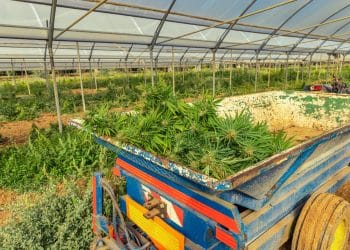Canada Is Not Allowing Concentrate Sales—Until Further Notice
This past August, in conjunction with the news (celebrations?) regarding Canada’s bid at Federal, nation-wide legalization, CBC Radio Canada reported that the Canadian Government will forbid the sale and marketing of cannabis extracts products, namely, cannabis vape oils and waxes. This regulation to Canadan cannabis laws is ostensibly due to the fears of “psychosis, or anxiety” on the part of the medical, regulatory community, who worry that cannabis products containing a larger concentration of cannabinoids will predispose consumers towards these adverse effects. One feels an urge to point out a few things to the Canadian government in this regard.
First, while THC toxicity in and of itself is a real event that can present varying degrees of concern, it has not been directly implicated in causing long term psychosis, a condition whose definition resides within very strict limits. Rather, research seems to point out that “the ‘functional psychosis’ related to cannabis use is best explained as an underlying functional illness”. [1] In other words, people who tend more towards psychosis and even schizophrenia seem to seek out cannabis as a self-remedy, while in fact dealing with early stage onset of these very serious conditions. This then creates a spurious causation between cannabis use and these mental conditions, a fact that cannabis detractors have sought to promote (and yet have been unable to definitively prove) for many decades. Correlation, as the saying goes, does not imply causation.
Second, the fear of concentrates due to them being part of an “industrial process” and therefore “not natural products” seems highly irrational. Ethanol, or alcohol, is certainly produced from an ‘industrial process’, and yet one does not typically hear fears of its legal stature and consumption (not since repealing of Prohibition in the 1930’s at least). As with any manufacturing process, strict cannabis regulation and high quality testing ensures that materials being sent to market are safe, efficacious, and contain concentrations as-advertised. It is entirely inadvisable to simply shut down arguably the majority of a potential market because one fears the downsides of shoddy regulatory administration. As a budding new industry (pun fully intended), we would hope that the Canadian government could instead hold itself and its people to a higher standard of achievement, rather than a lower threshold of failure.
Finally (and this is something CBC Radio Canada article did mention), the fear among bystanders is that banishing this form of cannabis use will only accomplish a ‘job half-done,’ driving consumers towards the black market as they were in California for years before statewide legalization became enforced in 2018. At-home extract manufacturing, though lucrative on a weight-by-weight scale, is incredibly dangerous and can be harmful to the environment. Regulation and management of any kind is far preferable to illegalization and denial, which is what we thought this movement towards legalization was, in fact, all about.
Reference:
- Johns, Andrew. “Psychiatric effects of cannabis”. Brit J Psych.,2001,Volume178:116-122. [journal impact factor = 7.06; cited by 550]












